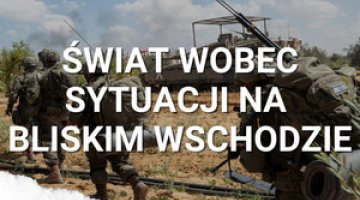The offensive of Assad’s troops on the Turkish de-escalation zone in Syria
An offensive launched by the army of the Syrian Arab Republic and pro-Iranian Syrian militias backed by the Russian Air Force on Idlib (which is nominally the Turkish de-escalation zone) has been underway since the end of April. The zone’s southern fragment has been taken, the troops have sustained serious losses in personnel and equipment, civilian victims have been reported, and around 15,000 people have become internal refugees. Idlib (along with the Turkish safe zones in the northern part of the Aleppo province and areas occupied by Kurds linked to the PKK in north-eastern Syria) is the only part of Syrian territory to have remained beyond the control of the government led by President Bashar al-Assad. At present, it is home to around 3 million Syrian citizens and tens of thousands of militants from various camps.
Pursuant to the agreements which Turkey signed with Iran and Russia in Astana in autumn 2017, Turkey is in charge of the entire opposition-controlled Idlib region. However, in practice the forces collaborating with Turkey have been forced out of the southern part of the zone governed by radicals from the Hayat Tahrir al-Sham coalition. The Syrian troops’ operations have so far been limited to this area.
Commentary
- The offensive illustrates the current balance of forces and the dynamics of the Syrian conflict in which Turkey is in fact a passive actor. The initiative has remained with the troops of President Assad’s regime operating under the patronage of Russia. They are winning subsequent stages of the civil war; the next stage being to force opposition troops out of southern Idlib (most likely this was agreed earlier in the Damascus–Moscow–Ankara triangle).
- The Turkish moves are limited to protecting what it already controls and taking security measures in case of Kurdish attacks. Over the past few years, Ankara has lost its position of an equal participant in the conflict, and over the past few months it has been discredited as a patron of the Sunni opposition, only a section of whom recognise its superiority. However, the greatest problem – and a tangible one that the escalation of the offensive launched by Assad’s forces may entail – would be a direct attack on Turkish troops deployed in Idlib and the threat of the continued influx of refugees (at present, around 3.5 million of them are in Turkey). Syria has been making efforts to challenge the already established balance of forces, trying to regain as much as possible of its territory and – as its opponent is increasingly weakening – to expand its scope of independence in relations with its Russian protector.
- The exceptional position Russia has taken in the Syrian conflict is easier to notice in the present situation. It has been effectively playing on all parties to the conflict. At the time of the negotiations in Astana, Moscow backed Turkey’s proposal to build a de-escalation zone to provide shelter to the armed Syrian opposition. At the same time, it has maintained the possibility to influence the scale of the offensive launched by Assad’s troops; this would have been impossible without Moscow’s consent and support from the Russian Air Force. Being able to limit the range of this offensive, Russia emphasises its role as an arbiter in this conflict in contacts with both Turkey and EU member states. The possibility that Assad’s troops will use the offensive as an opportunity to regain Idlib





